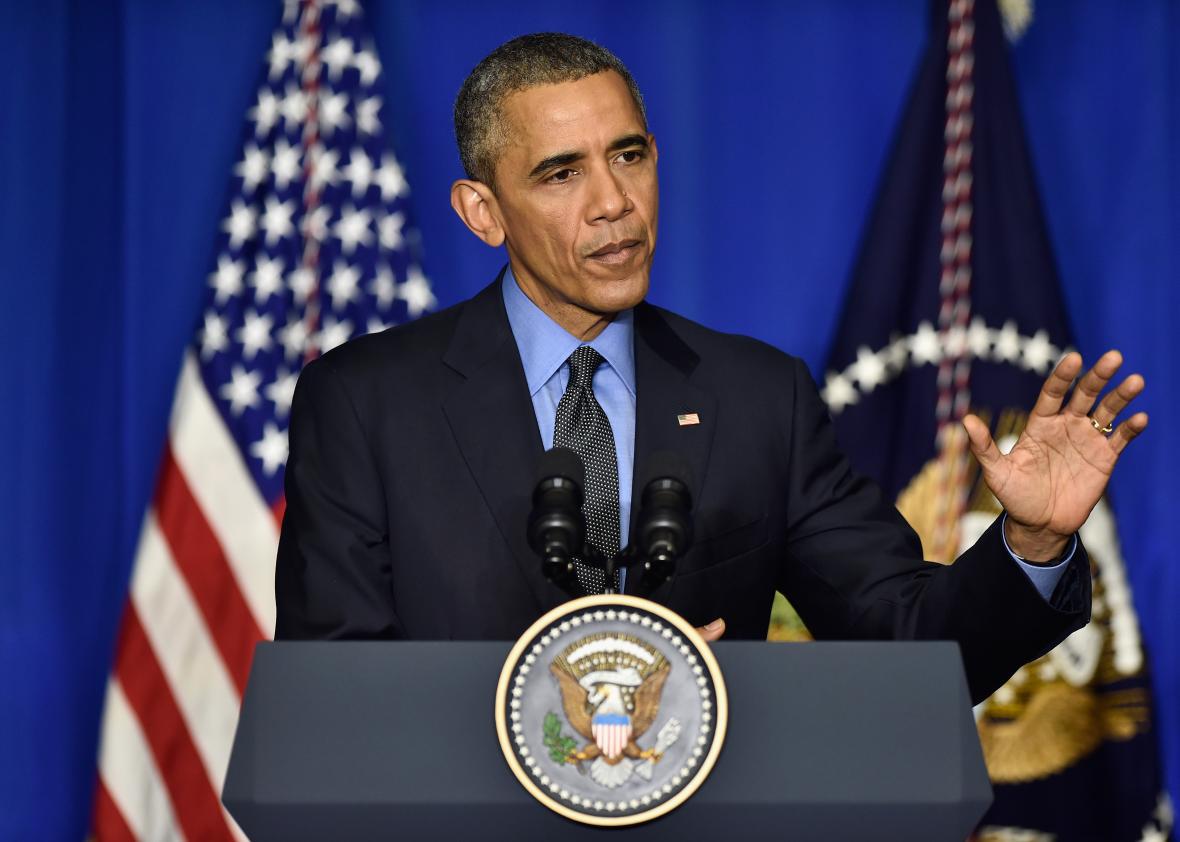Before leaving international climate talks in Paris on Tuesday, President Obama said in a news conference that if major action wasn’t taken to curb emissions, much of the U.S. defense budget in the future would be spent dealing with the effects of climate change. He had earlier justified his presence at the Paris talks by calling it an “act of defiance” following last month’s terrorist attacks in Paris. All of this was amid a round of extremely silly criticism, including from some 2016 candidates, of the administration’s oft-stated argument that climate change is a national security threat, contributing to violence and political instability. “One of the dumbest statements I’ve ever heard in politics,” commented Donald Trump, who would know. “Terrorists don’t care that we’re going to Paris, other than it provides a target. President Obama is delusional on this,” said Carly Fiorina.
This entire conversation is depressing for several reasons. It’s been more than a decade since the Pentagon began issuing alarming reports warning that climate change will become a major national security threat. It’s hardly an exotic argument anymore, yet Republicans still get the vapors every time someone like Bernie Sanders brings it up.
While I think advocates should be wary of drawing too direct a causal link between climate change and conflicts like the one in Syria, climate change is a macro trend that “effects all trends,” as the president put it Tuesday.
Climate factors certainly contribute to instability in the fragile states where terrorist groups operate. As I wrote in September, changing climate patterns in the Middle East and the Horn of Africa are likely responsible for at least part of the wave of migrants and refugees currently flooding Europe and will almost certainly contribute to larger mass movements of people in the future. Many of the same politicians stoking fear of refugees are, at the same time, supporting a dangerous status quo guaranteed to create more of them.
The president’s linkage of climate change and terrorism makes sense. Americans view groups like ISIS as a much bigger threat than climate change, despite the fact that climate change already affects many more people around the world in far more countries. It’s unfortunate the problem isn’t considered worthy of action on its own, and I’m not sure the language of military threats is the best one to apply to every major challenge the country faces, but it’s hard to beat the threat of terrorism when you’re trying to motivate Americans to act.
